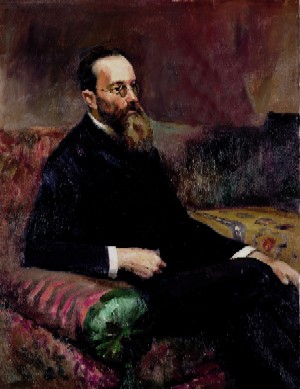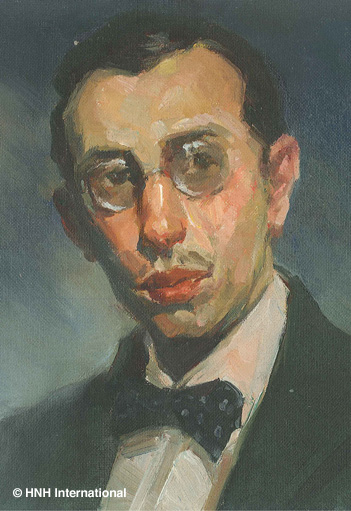The ORF Vienna Radio Symphony Orchestra is an orchestra of world renown; it defines itself in the Vienna orchestral tradition and is known for its exceptional, bold programming. Marin Alsop took over as Chief Conductor in September 2019.
The ORF Vienna RSO regularly performs in two subscription series in Vienna, in the Musikverein Wien and the Wiener Konzerthaus. In addition, it appears every year at major Austrian and international festivals. Tours to European countries and overseas are a regular part of the ORF Vienna RSO schedule as well. Since 2007, the orchestra has successfully collaborated with the MusikTheater an der Wien, thereby gaining an excellent reputation as an opera orchestra. Yet the ORF Vienna RSO is also entirely at home in the film music genre.
The broad scope of the orchestra’s recording activities includes works in every genre, among them many first recordings that represent modern Austrian classicists and contemporary Austrian composers. In 2024 the ORF Vienna RSO received the renowned ICMA Special Achievement Award for the recording of the complete Bruckner symphonies in all versions, conducted by Markus Poschner. The ORF Vienna RSO has also launched a broad-based educational program.


One of The Five, the leading group of 19th-century Russian nationalist composers, Rimsky-Korsakov embarked at first on a career as a naval officer, following the traditions of his family, but he later resigned from the service to devote himself entirely to music. He was proficient as an orchestrator and set himself to smoothing out some of the apparent crudities in the work of some of his fellow composers, completing and revising works such as Borodin’s opera Prince Igor and much of the seemingly uneven writing of Mussorgsky. He was respected as a teacher, his pupils including the young Stravinsky. Most generally known for his orchestral compositions, Rimsky-Korsakov wrote songs and choral music, chamber music and works for piano. His textbook on orchestration has been widely if not always wisely used.
Operas
Of the 15 operas completed by Rimsky-Korsakov, mention may be made of The Snow Maiden, The Maid of Pskov, The Tale of Tsar Saltan, Mlada, Sadko, The Legend of the Invisible City of Kitezh and the satirical and once-banned Le Coq d’or (‘The Golden Cockerel’). Orchestral and instrumental excerpts from some of these may be very familiar, including the famous ‘Flight of the Bumblebee’ from The Tale of Tsar Saltan depicting a prince who turns himself into a bee and stings his wicked aunts.
Orchestral Music
Of the various orchestral works of Rimsky-Korsakov, Capriccio espagnol (‘Spanish Caprice’) and Sheherazade are by far the best known, followed by the Russian Easter Festival overture. The title of the Capriccio espagnol is self-explanatory; Sheherazade, with no detailed and specific programme, is based on the tales told in The Arabian Nights by the princess Sheherazade (represented by a solo violin) in her effort to postpone the sentence of death declared on her by her master, the Caliph.

The son of a distinguished Russian singer, Stravinsky spent his earlier years in Russia, either in St Petersburg or, in the summer, at the country estates of his relatives. He studied music briefly with Rimsky-Korsakov but made a name for himself first in Paris with commissions from the impresario Diaghilev, for whom he wrote a series of ballet scores. He spent the years after the Russian Revolution of 1917 in Western Europe and in 1939 moved to the United States of America. There in the post-war years he turned from a style of eclectic neoclassicism to composing in the 12-note technique propounded by Schoenberg. A versatile composer, inventive in changing styles, he may be seen as the musical counterpart of the painter Picasso.
Stage Works
Stravinsky made an immediate impression in Paris with his score for L’Oiseau de feu (‘The Firebird’) for the Ballets Russes of Diaghilev. There followed the very Russian Petrushka, set in a Russian fairground, and then the 1913 succès de scandale of Le Sacre du printemps (‘The Rite of Spring’). After wartime works on a smaller scale, including The Soldier’s Tale, Stravinsky turned again to ballet for Diaghilev in Pulcinella, based on music wrongly attributed to Pergolesi. Later ballets include Apollon musagète, Le Baiser de la fée (‘The Fairy’s Kiss’), Jeu de cartes (‘Card Game’) and Agon. The Latin opera-oratorio Oedipus Rex, with a text translated from Cocteau, was first staged in 1928, while the opera The Rake’s Progress, neoclassical in form and based on the engravings of Hogarth, with a libretto by W.H. Auden and Chester Kallman, was staged in Venice in 1951.
Orchestral Music
Stravinsky’s orchestral music includes symphonies, suites from some of the ballets, and two suites arranged from sets of easy piano pieces. Concertos of various kinds include a 1936 Concerto for piano, wind, timpani and double basses, the Ebony Concerto for jazz band, and a Violin Concerto.
Chamber and Instrumental Music
Stravinsky’s chamber music includes some arrangements of orchestral works, in particular two versions of music from Pulcinella, one for violin and piano and one for cello and piano, both under the title Suite italienne.
Choral and Vocal Music
Stravinsky’s choral music ranges from major works such as the Symphony of Psalms to settings of Latin and Slavonic religious texts, the arranged Four Russian Peasant Songs, and the final Requiem Canticles. His solo vocal works are equally varied, including songs from traditional Russian sources, his sacred cantata Abraham and Isaac with its Hebrew text, the Elegy for J.F.K. with a text by W.H. Auden, and a setting of Edward Lear’s The Owl and the Pussycat.






























